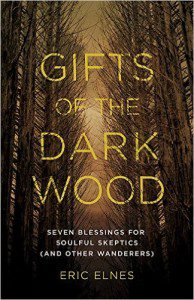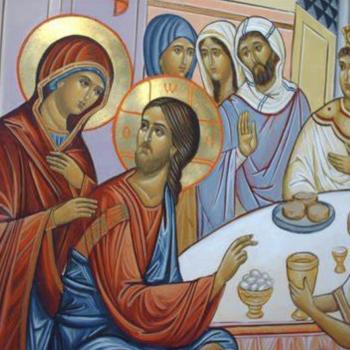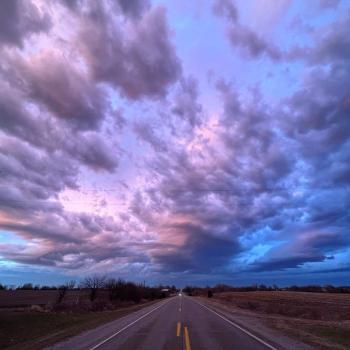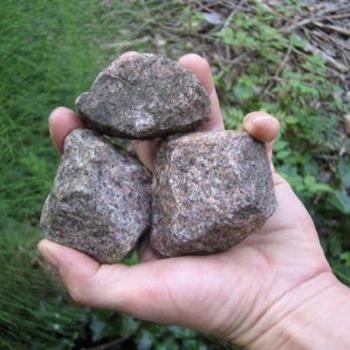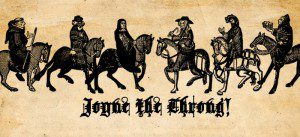
The Kingdom of Heaven is at hand. (Matthew 4:17)
“Heaven must be messy.” –Eric Elnes, Gifts of the Dark Wood
Last week I wrote about Eric Elnes’s Gifts of the Dark Wood, but there’s something more I want to share. Something so central to the mission of Sick Pilgrim that it merits its own post. Elnes calls it “The Gift of Misfits.”
To recap my last post: The Dark Wood is an ancient metaphor for emotional, psychological, and spiritual distress. Nobody chooses to enter the Dark Wood. Who’d do such a thing? You find yourself there, just like Dante wrote. Usually, by the time you realize where you are, you’re thoroughly lost. I’ve spent a lot of time trying to find a way out, but I’m still here, and I’ve resigned myself to trying to learn its secrets. Or as Elnes would say, more positively, to “embrace its gifts.”
But I know I’m in danger. I feel myself simultaneously trapped in a darkness that wasn’t my choosing and drawn to a darkness that excites me, because it gets me to feel something again. Emotional numbness, the inability to feel anything at all, is a common symptom of PTSD, my particular struggle. I want so desperately to feel again that I find myself drawn toward the kind of darkness that makes me afraid. I find myself watching The Babadook and It Follows, reading Demon Camp, and listening to The Black Tapes podcast not only because horror seems to speak more authentically to my experience of life but because horror elicits a genuine emotional response from me that more wholesome fare can’t. Knowing that I can still feel fear makes me feel a little bit more alive.
I know this is not good. It’s a very short walk from there to appreciating pain more than pleasure. It’s a path to self-harm.
I also worry that there’s something so broken in me that I can’t thrive in the light. That I wasn’t made for goodness. That I was made this way, and it’s why even as a preteen girl I thought Robert Smith’s ghoulish stage presence was adorable.
Maybe one of the dangers of the Dark Wood is that we get a little too comfortable here. We stay here long enough and it becomes familiar; we think we know all the secret paths and hideouts. We can no longer imagine what life might be like outside, what it’s like to feel safe, rested, healthy, joyful. We no longer recognize that we’re lost. We think we’re home.
This is why it’s so important to travel in a pack. In the Dark Wood, Elnes writes, “walking alone is about as advisable as walking alone in a physical dark wood. It’s easy to get lost without the aid of companions… While we all walk our paths as individuals, the lone seeker is more likely to get lost or to give up than the one who travels in company…if we enter the Dark Wood alone, and stay there alone, the odds are stacked against us that we will be back at the Adversary’s taverns in no time.”
Elnes believes the most important gift of the Dark Wood is “the community of fellow misfits.” We need traveling companions to help us keep our wits about us.
He defines a misfit as a “comparatively rare” individual, someone who is intentional about embracing the gifts of the Dark Wood, someone who is not absorbed by materialism or mass-market consumerism, someone who is suspicious of quick fixes and self-help. Misfits “swim against the current” and they often feel alone or out of place.
If you’re reading this, I probably don’t need to define misfit. If you’re frequenting Sick Pilgrim, you probably know exactly what I mean.
In particular, Elnes recommends surrounding yourself with three types of misfits in the Dark Wood.
Misfit #1: An Interpretive Guide or Mentor
Elnes says this is someone who has been in the Dark Wood before you and knows the traps and dead ends. This is a person you can check in with regularly to remind you of reality.
This doesn’t have to be a priest or a pastor or a spiritual director or a counselor. It can be a spiritually mature friend, someone “who listens without judging and shares perspectives freely without trying to turn you into a miniature version of themselves.”
If you can’t find this person, Elnes says spiritual books can help. But it’s so important to have at least one flesh and blood person whose company (even by phone or internet) restores you to yourself and infuses you with a little more energy to go on.
Misfit #2: A Small Band of Traveling Companions
These are people who are “committed to finding and living in their own place of aliveness, following their own sense of call that keeps them from worshiping at the shrines of the mediocre” (and drinking at the devil’s pub). They “love exploring the Dark Wood,” and they aren’t afraid to share their lives, confess their sins and secrets, and wrestle openly with God. It’s great if these people are in your town and you can hang out with them in person regularly. But so often our traveling companions are dispersed all over the world. That’s one of the reasons Jonathan and I started this blog–to be our virtual pub, where we could gather as a band of misfits and offer each other comfort, companionship, and a space to try to figure it all out.
Misfit #3: A Misfit Community of Faith
This one, Elnes admits, is the hardest, because it’s so common for misfits to feel alienated in their local parish or church community and to retreat to the fringes. But for people of faith–even fringey faith–community is crucially important. Christianity recognizes the need to be a part of a family bigger than our own. The family of our baptism is supposed to pick up the slack when the biological family fails.
I struggle with this one most of all. I’ve moved a lot. My own family is a thousand miles away in different directions. I’ve never lived anywhere for more than a few years. While I’ve always been able to assemble a group of misfits at my table, I’ve never felt at home in a church. Elnes says that fringe churches and grassroots communities are addressing this need, but for better or for worse, I’m a Catholic. I can’t go rogue on #3.
I think he might suggest, in that case, that I smoke out the others in my parish who feel like I do–he promises they’re out there–and take them out for drinks.
In the meantime, I hope Sick Pilgrim can be a place of companionship and faith formation for me. And for you.

